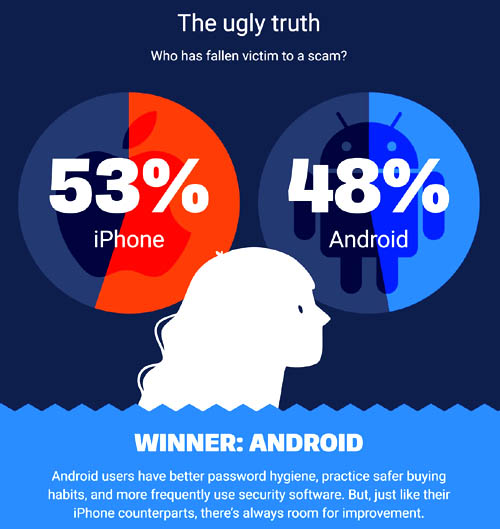Term of the Moment
byte addressable
Definition: iPhone vs. Android
People get used to operating a device and tend to upgrade on the same platform. Although both iPhone and Android do exactly the same things, there are differences that require some learning when switching platforms. Both platforms offer a wealth of apps and functionality.
For the Beginner
For rank novices, the best smartphone choice has more to do with help. If co-workers or family use Apple, choose an iPhone. If they use Android, choose a Samsung, Motorola, Pixel or other Android phone.
Like Mac and Windows
As it does with the Mac, Apple controls the hardware and operating system. Like Microsoft, Google controls the OS, and although it offers its own Android-based Pixel phone, there are numerous Android phone models from several vendors. See Pixel phone.
iPhone Advantages
The iPhone user interface is more consistent between OS versions; however, there was a big change in 2013 (see iOS 7). In addition, Apple was first to do a stringent job testing apps for their app store. Apple also rejects X-rated content, although nothing stops people from retrieving anything via the phone's Safari browser. Lastly, Apple's tech support is typically first rate. See iPhone.
Android Advantages
Although top-end Android phones are $1,000 and above, one can purchase a very respectable Android in the $100-$300 price range. In fact, an Android phone may be free with certain carrier plans.

Scam Victims
For the Beginner
For rank novices, the best smartphone choice has more to do with help. If co-workers or family use Apple, choose an iPhone. If they use Android, choose a Samsung, Motorola, Pixel or other Android phone.
Like Mac and Windows
As it does with the Mac, Apple controls the hardware and operating system. Like Microsoft, Google controls the OS, and although it offers its own Android-based Pixel phone, there are numerous Android phone models from several vendors. See Pixel phone.
iPhone Advantages
The iPhone user interface is more consistent between OS versions; however, there was a big change in 2013 (see iOS 7). In addition, Apple was first to do a stringent job testing apps for their app store. Apple also rejects X-rated content, although nothing stops people from retrieving anything via the phone's Safari browser. Lastly, Apple's tech support is typically first rate. See iPhone.
Android Advantages
Although top-end Android phones are $1,000 and above, one can purchase a very respectable Android in the $100-$300 price range. In fact, an Android phone may be free with certain carrier plans.

In 2025, the Malwarebytes security company compared both platforms for several security issues. Android beat iPhone six to eight percentage points with regard to using security software and proper passwords, and this was the scam comparison and overall analysis. Android won likely because many Android users are very computer savvy and more aware of security issues.